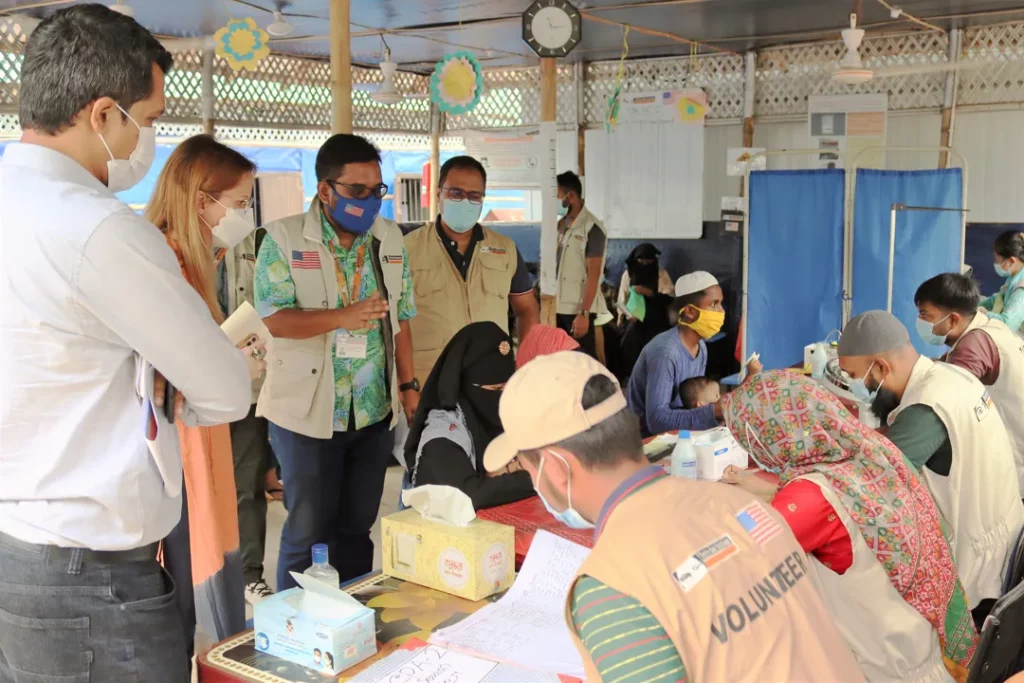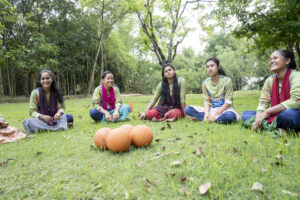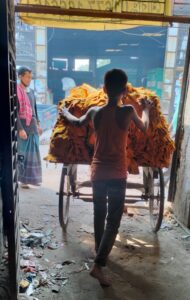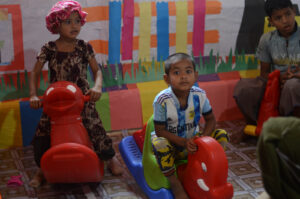Kalyana: Ensure access to lifesaving integrated and sustainable services to the Rohingya population and host communities in Cox’s Bazar District, Bangladesh
Project Highlights
Camp 26, Camp 27, Hnila Union- Ward 7 & 9
AGRAJATTRA (Child Protection)
Direct Beneficiaries: 46,614, Indirect Beneficiaries: 24,128
1 September 2022 – 31 August 2025
Supported By
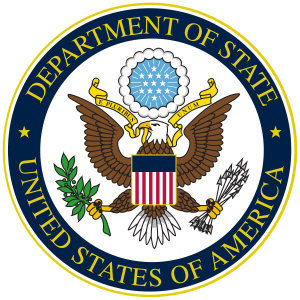
Project Summary
The “Kalyana” project, funded by the Bureau of Population, Refugees, and Migration (BPRM), is addressing the urgent needs of Rohingya refugees and host communities in Teknaf’s Nhila Union, Camps 26 and 27. Initiated in 2022, this multi-year project is improving safety, dignity, and resilience through a multi-sectoral humanitarian response.
The project is: improving health and nutrition services for women and children under five through integrated care, enhancing access to safe WASH by introducing desalination plants, rainwater harvesting, and hygiene education programs and strengthening child protection by providing psychosocial support, case management, and preventive measures against child abuse and trafficking.
Reaching 46,614 people (38,478 Rohingya and 8,136 from host communities), the project is promoting community engagement, sustainable solutions, and long-term resilience in one of the world’s most fragile humanitarian settings.
Project Goal
The goal of this project is to improve the safety and dignity of refugees and host communities in the targeted area through an integrated humanitarian response. It is increasing access to quality health and nutrition, WASH services, and child protection.
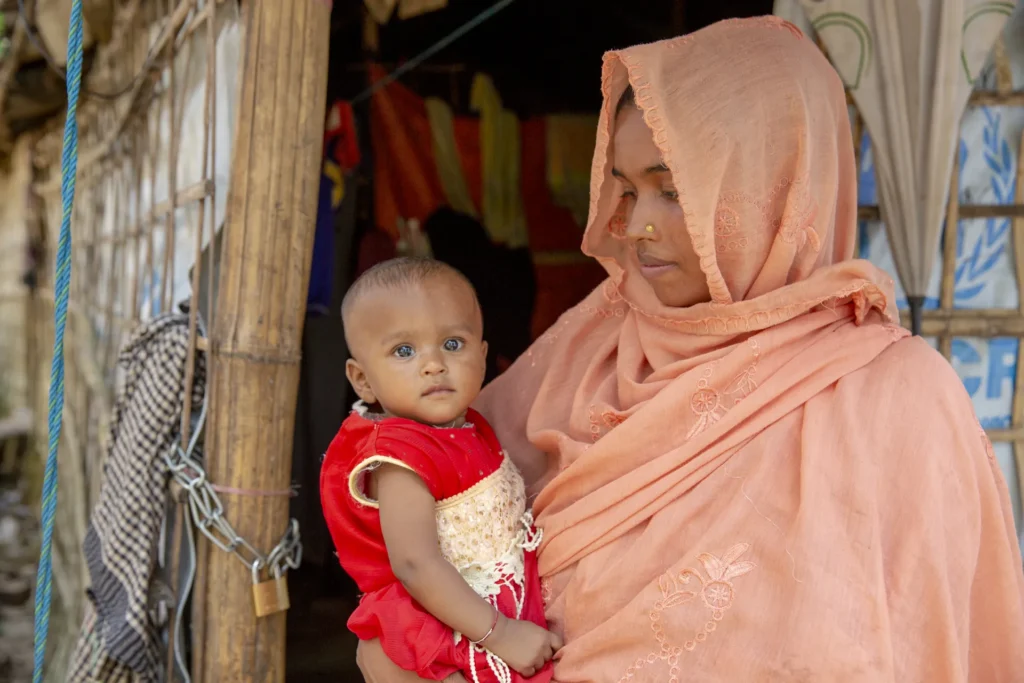
Key Activities and Achievements
Health: Tdh is providing 24/7 essential primary healthcare services (such as Basic Emergency Obstetric and Newborn Care/BEmONC, Ante-Natal Care/ANC, Post-Natal Care/PNC, and Family Planning) through two Primary Healthcare Centers (PHCs) in Camps 26 and 27, serving both Rohingya and adjacent host communities. The PHCs offer treatment for communicable and non-communicable diseases. They also refer children with Severe Acute Malnutrition (SAM) and Moderate Acute Malnutrition (MAM) for nutrition care and provide Infant and Young Child Feeding (IYCF) counselling. The two PHCs are serving an average of 655 patients per day, totaling 239,075 consultations in a year.
WASH: Tdh is providing desludging and solid waste management services through a Fecal Sludge Treatment Plant and a Solid Waste Management Plant. It is also offering essential services by constructing latrines, bathing cubicles, drains, and communal bins, along with disinfection, maintenance, decommissioning of WASH facilities, and promoting hygiene.
18,200 project participants are benefiting from the Fecal Sludge Management (FSM) and Solid Waste Management (SWM) interventions at the two PHCs, one Multi-Purpose Community Center (MPCC) in Camps 26 and 27, and the surrounding host communities.
Child Protection: Tdh is providing Mental Health and Psychosocial Support (MHPSS), including Case Management and PSS, to children through the MPCC and Child Play Areas (CPAs), while also operationalizing a community-based child protection mechanism. Tdh is targeting caregivers with the Positive Parenting Skills program to promote better parenting at home. Problem Management Plus (PM+) counseling is planned to offer psychological support to caregivers (16+) showing signs of stress, anxiety, and depression. Community outreach focuses on raising awareness around Health, WASH, and Child Protection. Through comprehensive child protection services, the lives of 23,266 project participants are being positively impacted.
